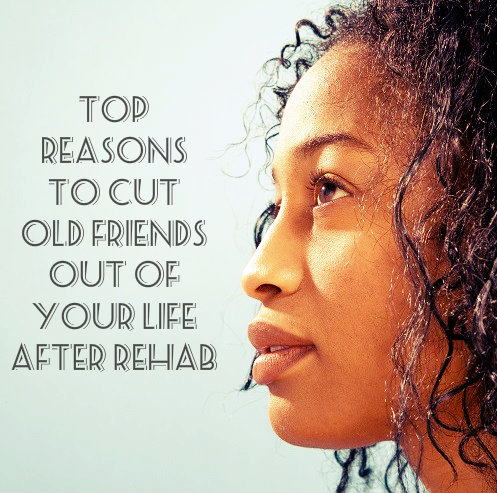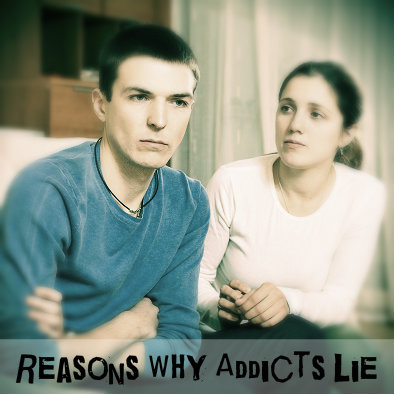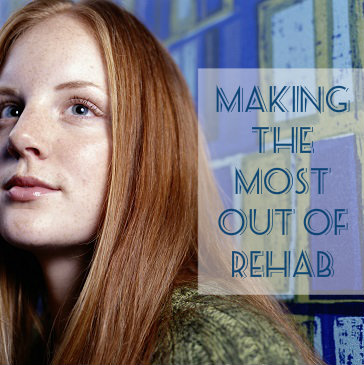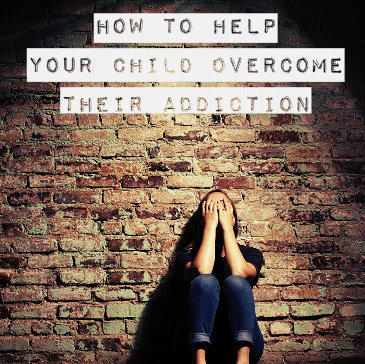09 Oct 2014
Why You Need To Ditch Old Friends After Rehab
Peer pressure is a powerful force. The need to conform to the crowd and go along with what seems normal is a natural part of being human. We know it from experience and we know it from scientific research.
If you have worked hard to get through rehab, get sober and are determined to stay sober, you have to make important life changes. One of those changes is getting rid of old friends.
In fact, having a strong support group is crucial to your recovery. But, if any one of your old friends is still using or doesn’t fully support your sobriety, it’s time to say goodbye.
Reasons To Cut Old Friends Out Of Your Life After Rehab
Here are the best reasons to make the difficult choice to cut old friends out of your life:
- Old friends will try to tempt you with false memories of happier times. The truth is that while you were using, your life was in the toilet. Some of your old friends, however, will try to convince you that life was better then, that you had more fun and were fun to be around. The reality is that these friends don’t want to live in the toilet alone. They want someone to justify and validate their lifestyles. Don’t listen. They are wrong and you are better off sober.
 Putting yourself in high-risk situations will cause you to relapse. It just makes good sense, but research has also proven this fact. Recovering addicts are far more likely to relapse if put into risky situations. These include being around people who are using drugs or alcohol. Facts don’t lie. If you surround yourself by people who use, you are more likely to use as well and to undo all the hard work you put into your recovery.
Putting yourself in high-risk situations will cause you to relapse. It just makes good sense, but research has also proven this fact. Recovering addicts are far more likely to relapse if put into risky situations. These include being around people who are using drugs or alcohol. Facts don’t lie. If you surround yourself by people who use, you are more likely to use as well and to undo all the hard work you put into your recovery.
- Your old friends do not have your best interests at heart. If you have an old friend who is still using, his daily motivations for nearly everything he does revolve around his addiction. Every choice he makes, and how he interacts with people, is related to his need to drink or use drugs. This means that, even if he sounds like he is supporting you and cares about you, your well-being is low on his list of priorities.
- Poor support will cause you to relapse. Another finding from research about addiction and relapse is that support is crucial to staying sober. One of the leading factors in people who go back to using after treatment is a poor support system. Friends from your past do not constitute a strong support system. You need people who truly care about you and your health and well-being. These are friends and family members who are sober enough to care.
Recovering From Addiction? Put Yourself First
Overcoming addiction is a huge challenge. By getting help, going through rehab and working to avoid a relapse, you have already put in a huge portion of the work. Now you just need to live your life as a sober person and resist those nagging urges to use again. They will lessen with time, but there are few things more detrimental to your resistance than old friends.
If you abused drugs or drank too much with someone in the past, those habits will be even more difficult to resist when you are around him. If these friends really do care about you they will understand that you can’t be around them.
Put yourself first, stick with your sober support group and learn to make new friends. You won’t regret it in the long run.
23 Sep 2014
How To Cope When Your Child Is An Addict
Having an addict in the family is never easy. When that addict is your child, whether a teen, young adult or fully-grown adult, the impact on you as the parent is devastating. First you feel immense guilt and pain because your child is suffering. You may also face a lack of support from your loved ones. Finally, your mental, emotional and physical health may begin to deteriorate. How do you cope with these issues after you have tried to get help for your child?
Living With Pain And Guilt When Your Child Is Addicted
 It is only natural to experience a sense of extreme guilt and feeling as if you have failed your child in some way. Seeing your child suffer can also cause you a tremendous amount of anguish and emotional pain. If you have done your utmost to help your child get into recovery, if you have expended your resources, you have done what you can. Remember that your child is capable of making decisions and his poor choices are not your fault. It is normal to still feel guilt and pain, but there are ways to cope.
It is only natural to experience a sense of extreme guilt and feeling as if you have failed your child in some way. Seeing your child suffer can also cause you a tremendous amount of anguish and emotional pain. If you have done your utmost to help your child get into recovery, if you have expended your resources, you have done what you can. Remember that your child is capable of making decisions and his poor choices are not your fault. It is normal to still feel guilt and pain, but there are ways to cope.
Realize that extreme feelings of guilt and pain are signs of a negative attachment to your child. Recognize this attachment and how it is harming you. Accept that your child makes his own choices and that you cannot force him to stop using drugs or alcohol. Focus your energy on yourself and on the positive relationships in your life. If your spousal relationship has been damaged because of your child’s addiction, work on it. Redirecting your focus will help you detach from negative and unhelpful emotions.
Getting Support For Family Addiction
A major issue that parents of addicts face is a lack of support. If your child had another kind of medical disease, like cancer, you could expect to receive all kinds of support from family and friends. Parents of addicts, however, often find their loved ones have turned away, thanks to the lingering stigma attached to the disease of addiction. Support is essential to coping, so find it where you can. Look for other parents who know what you’re going through. Support groups for loved ones of addicts can be a great resource. You might also work on those closest to you. Talk to your more supportive loved ones and explain that you need help and love.
Taking Care Of Yourself When Your Going Through The Pain Of Your Child Being An Addict
You can only help others if you are properly cared for and are well. Trying to help your child and suffering from the guilt and other negative emotions his issues have created, your own self-interests have probably fallen to the bottom of your list of things to do. You must find the time to take care of yourself if you hope to be happy again, to be able to help your child when he is finally ready for it or to re-establish a healthy relationship with your spouse. It may seem selfish, but find time to do something you enjoy, something just for you. Make the time to prepare healthy foods for yourself and include exercise or meditation in your day. These small gestures will make you better able to cope with your addicted child.
Having a child who is seriously ill is one of every parent’s worst nightmares. With the disease of addiction the feelings of helplessness and guilt can be especially powerful. If you can dissociate yourself from those negative feelings, find support and take care of your own health, you can cope with this. You will even be able to help your child when he decides it’s time to get clean.
Read More: What Can You Do When You Feel Helpless With Your Child’s Addiction? And Help Your Child Overcome Their Addiction!
If You Need Help With Your Child’s Addiction – Call Us Now – We Are Here For YOU
19 Sep 2014
Speaking Up About Addiction
Addiction is often a silent disease. While no one is ashamed to talk about having arthritis or high blood pressure, the disease of addiction has long carried a terrible stigma. Those struggling with addiction are too often looked upon, by others as well as themselves, as weak, morally inferior and lacking in willpower. It is difficult to speak up and speak out about the challenges of this disease, but when we do, we can make real, positive changes. Only with awareness and recognition will more addicts get the help they need, while future addictions are prevented.
The Power Of Awareness
 The expression goes that knowledge is power and it carries a great amount of truth. When something like addiction remains shadowed and hidden, ignorance is allowed to grow. When someone knows nothing about addiction, the lies and misinformation seep in along with assumptions and prejudices. Someone who is ignorant about addiction may not be aware that a friend, coworker, or even a family member is struggling with the disease.
The expression goes that knowledge is power and it carries a great amount of truth. When something like addiction remains shadowed and hidden, ignorance is allowed to grow. When someone knows nothing about addiction, the lies and misinformation seep in along with assumptions and prejudices. Someone who is ignorant about addiction may not be aware that a friend, coworker, or even a family member is struggling with the disease.
Raising awareness about addiction can be powerful. Spreading the word about how damaging this disease can be is a great way to prevent people from abusing substances in the first place. Prevention is the best way to help spare people from the pain and suffering caused by addiction. Raising awareness can even help motivate other people to help make a difference. Even for those who never had an interest in drug use or drinking, learning more about addiction can inspire anyone to get involved with helping others.
Awareness can also make big changes over the long term. It might feel as if one person, or one small group, speaking up and talking about addiction makes little difference. The truth is that it can have a snowball effect. Your efforts to reach others inspire the next person, and the next person. When enough people start speaking up, lawmakers start to listen, as do organizations with the means to fund research and treatment. The act of speaking up, even by one person, can be powerful.
Sharing Stories Of Addiction
If you have been impacted by addiction, whether your own or someone else’s, sharing that story is one important way to speak out and raise awareness. The more we speak about addiction and the more we hear about it, the more it loses its mystery and stigma.
Several organizations encourage and host events that allow you to get your story out there:
- The National Council on Alcoholism and Drug Dependence has named September National Alcohol and Drug Addiction Recovery Month. This event encourages people to learn about addiction and recovery as well as treatment options.
- The Substance Abuse and Mental Health Services Administration supports October as National Substance Abuse Prevention Month and provides ideas and events for people to share their stories and to learn more about addiction.
- The U.S. Army supports veterans battling drug addiction by encouraging everyone to learn more about addiction, treatment and recovery. It also advocates for celebrating the successes of those who are in recovery and sober.
When it comes to a disease laden with stigma, the only way to banish the shame and ignorance is to speak up. If you have battled addiction, if you have seen a loved one laid low by this disease, or if you simply care about the issue, speak up, spread awareness and help others learn more about the disease of addiction!
Read Our Other Empowering And Inspirational Posts
Overcoming Addiction Is Worth It & So Are You! – Let Us Help You Take That First Step – Call Us Now!
18 Sep 2014
Why Addicts Lie
If you have an addict in your life you have been through some trying times. Your addict has a disease, but it’s a tricky one. She may cheat on you, lie, neglect you, steal from you or even hurt you. For those in close relationships with an addict, lying is one of the most hurtful behaviors to experience. You expect honesty in your intimate relationships, but addicts lie all the time.
Reasons Addicts Lie
 To help you cope with the lying and to learn to forgive and move past it, it helps to understand. Although it may not be right, there are real and valid reasons addicts lie.
To help you cope with the lying and to learn to forgive and move past it, it helps to understand. Although it may not be right, there are real and valid reasons addicts lie.
Addicts Lie To Avoid Confrontations
As you watched your loved one slide into addiction and ruin her life, you probably made numerous attempts to get her to stop. At times you may sound like a broken record and a nag. Maybe the issue has led to increased conflict. The stress of these confrontations is overwhelming and destructive for both of you. While you want to be honest, get the problem out in the open and find a solution, she just wants to avoid your hurt looks and anger. In order to get out of these conflicts and to avoid them, she will tell every lie imaginable.
Addicts Lie To Maintain The Addiction
Lies also help your addicted loved one to perpetuate her addiction. Most addicts are afraid to stop using for a number of reasons. They fear the idea of stopping because they feel like they need drugs or alcohol. The pain and discomfort of detoxing are scary and so is the possibility of failing. The idea of trying to live a sober life, and what that might be like, is even scarier. To keep the addiction going, your loved one will tell many lies. Lying becomes a tool for self-preservation.
Addicts Lie Because Of Shame
Addicts feel a great deal of shame. Although societal attitudes are very slowly changing, there is still a great deal of stigma attached to addiction. Many of us still view an addict as a person who is morally weak. It’s no wonder that addicts feel ashamed of what they do. Especially in sober moments, your loved one feels a huge sense of guilt, embarrassment and shame. Instead of working through these feelings, she uses more and then lies about it. She doesn’t want other people to realize just how badly she is doing.
Addicts Lie Because Of Denial
Denial is a powerful force and most addicts use it to cope with their problems. Despite all the evidence to the contrary, most addicts refuse to admit to having an addiction. They lie because they don’t want to make that admission. Your loved one probably thinks that she is different from other users. She can handle it, she says. She is in denial that her problem is no different from that of other addicts and as a result she lies to you and to herself.
As you cope with having a loved one addicted to drugs or alcohol, realize that her lying to you is not a personal attack. This is her coping mechanism and a rational part of the disease of addiction. This doesn’t mean that you should accept the lies. To help your loved one, you have to push through the falsehoods and ask her to face up to the truth. Don’t let her get away with lies when you catch them, but do provide ongoing love and support.
10 Sep 2014
The Allure Of Rehab Romances
People enter rehab for many reasons: some by way of external forces such as family, friends, legal obligations or employment requirements, while others are personally committed to turning their lives around. Once people walk through the doors, they are in a contained environment that may feel dramatically different than life at home.
Looking around the group therapy room or dining hall, the newly sober person may lock eyes with someone and feel a familiar flutter in the heart and butterflies in the stomach. Serotonin and dopamine that are activated in the brain when a person is using an addictive substance are not all that dissimilar from the chemicals released in human attraction. Add to it the brain chemical oxytocin, known as the “cuddle hormone” and the “tend and befriend hormone,” and there is a set-up for what is colloquially called a “rehab romance.”
Is It Really Love?
The dynamics of rehab romances are infatuation masquerading as love. Of course, there is loneliness and fear that wants to be comforted into submission. In such a setting, there is the common thread of loss, trauma, abuse and addiction that binds people together.
Comments such as “S/he gets me like no one else,” “We can stay sober together,” and “I need a place to stay when I leave here and s/he offered hers,” are commonly heard and used as justification for establishing a relationship that almost universally becomes a recipe for disaster. Why is that so?
The Perils Of Romantic Relationships During Drug Rehab
 Consider that someone in the throes of addiction has a relationship with their substance(s) of choice that superseded all others in their lives while they were using. They put it ahead of their partner, children, career and health. Saying goodbye to it is not a one-and-done event. It is an evolving process. Think of getting involved with someone in an addiction treatment program as a rebound relationship. Are you willing to be the rebound guy or girl and risk playing second fiddle to the addiction should they relapse?
Consider that someone in the throes of addiction has a relationship with their substance(s) of choice that superseded all others in their lives while they were using. They put it ahead of their partner, children, career and health. Saying goodbye to it is not a one-and-done event. It is an evolving process. Think of getting involved with someone in an addiction treatment program as a rebound relationship. Are you willing to be the rebound guy or girl and risk playing second fiddle to the addiction should they relapse?
Many in recovery are also dealing with codependence and have a need to be in a caregiving role. Meeting another struggling soul is the ideal opportunity for those patterns to surface. There are likely as many who are willing to be on the other side of the equation, and surrender to being enabled.
For some, dishonesty went hand in hand with the other addictive behaviors and if someone is in a monogamous relationship outside of rehab, there may be a temptation to lie about interactions behind those doors.
Safer sex practices may not have been a consideration out in the community and may be only an afterthought in an inpatient drug rehab setting. Predatory behavior may also have been part of the addiction cycle for some in treatment and might evidence itself behind the doors of the program they are in.
Short-term gratification is part of an addict’s pattern and seeing another person who seems available in the moment is like being a proverbial “kid in a candy store.” There is often no time to think about the long-term consequences of indulging in the sweets on the shelf.
Peers in treatment may show one face in the program and another once they are discharged. The best advice is: “Don’t take anybody in. Don’t take anybody on. You don’t know what someone is like in their daily lives.”
Worth The Wait
In 12-Step recovery, the newly sober are encouraged to refrain from engaging in budding romantic relationships for at least a year, primarily because they need to focus on their recovery and create a healthy bond with themselves without the distraction of another person. Ask yourself this: “Would you want to be in a relationship with you now? Are you stable enough to sustain positive interactions with someone else?”
Take the time to really get to know, love and respect the woman or man in the mirror before reaching out to bring in a partner, particularly one who, like you, is a newborn, vulnerable infant entering into the world of recovery. Relationships are not 50/50. They are 100/100 with each person bringing 100% of who they are to the table. Wouldn’t you rather be truly prepared to bring the best of who you are to a relationship and welcome in a partner who can do the same? You are likely to find that it is worth the wait.
05 Sep 2014
Discover When Partying Becomes Addiction
Partying can be a fun way to relax and unwind on the weekends and—when done without drugs and only moderate alcohol intake—a healthy way to combat stress. If, however, you are the type of partier who uses illicit drugs or who binge drinks, you could be heading down a dangerous road to addiction, serious health problems and even death. It may be time to question your partying habits and take a hard look at your actions. Are you partying responsibly and moderately? Or are you getting out of control?
When Does Partying Become Addiction?
 Partying may be as innocent as hanging out with friends at a house party with a couple of beers or going to a club for a few hours of dancing, but it can also mean using club drugs, drinking excessively, and making dangerous choices. You may even start partying and using what are considered to be non-addictive club drugs just once a week, but then find that you want to do it more and more. How do you know when you have crossed the line from a fun night out to going out of control and heading down the path to addiction?
Partying may be as innocent as hanging out with friends at a house party with a couple of beers or going to a club for a few hours of dancing, but it can also mean using club drugs, drinking excessively, and making dangerous choices. You may even start partying and using what are considered to be non-addictive club drugs just once a week, but then find that you want to do it more and more. How do you know when you have crossed the line from a fun night out to going out of control and heading down the path to addiction?
Here are some signs of addiction to watch for:
- You daydream about and crave the high you get when using a party drug or binge drinking. When you start to plan your party binges during the day and look forward to them more than once a week, you should be concerned.
- You develop a tolerance. In other words, you need more and more of a drug or alcohol to achieve the high and the euphoria that you crave.
- You start to use drugs or alcohol more often and in greater quantities. With tolerance comes the desire to use more. Be concerned if you start to increase the frequency of drug use or drinking in order to chase your high.
- You make poor decisions while under the influence. A serious aspect of problem drinking and drug abuse is engaging in risky behaviors that negatively impact your life. If you continue to use after getting sick from substance abuse, after missing work, or after getting into legal trouble, you have a problem.
Can You Turn Your Partying Around?
If you are beginning to question how much and how hard you party, you are in a good position to turn things around. Start cutting back right away. If it helps, do so in small steps. Eliminate one night of partying each week. On the nights that you do party, reduce your consumption of drugs or alcohol. Sometimes going cold turkey is not the most successful way to cut back.
Use your friends to help you stay focused on your mission to slow down. Tell everyone that you intend to cut back and ask for support. If any of your friends encourage you to party in spite of your declaration, they don’t have your best interests in mind and you need to let them go. For your nights off from partying, find sober friends to spend time with and engage in fun activities that don’t involve drinking or drugs.
If you try to cut back and find that you can’t do it, you may be further down the road than you thought and you may need professional help. Find an experienced substance abuse counselor or turn to a local support group for more resources. With professional help and the support of your friends and family, you can turn your life around before it is too late.
28 Aug 2014
How To Make The Most Out Of Rehab
Overcoming addiction is one of the biggest challenges that many people face. With dedication, support and the treatment administered by caring professionals in a rehab facility, all addicts have the ability to get clean and to learn to stay sober over the long term. Going through a successful drug rehab program takes effort on the part of the caregivers and the addict. If you are considering getting into rehab to treat your addiction, make the most of it in order to be successful.
 What Happens In Drug Rehab?
What Happens In Drug Rehab?
Start by learning what will happen when you enter a rehab facility. By being prepared ahead of time, you will give yourself a head start in the process of getting well. As you search for a facility for your care, hopefully with the support of a loved one, ask questions about what will happen when you enter treatment. Most likely you can expect to go through a detox and then get one-on-one counseling as well as participate in group therapy and support sessions. Beyond these basics, different facilities may use different activities and will operate based on different philosophies. Find out what those are before you start your treatment program.
Maintain A Positive Attitude While In Rehab
Going through rehab will be hard work. At times it will feel like you are failing, but when you keep your attitude positive, you will be more likely to succeed. Enter the process understanding that there will be ups and downs, but prepared to work hard for your sobriety and your healing. Remember that the first part, your detox, will be the hardest part, but that it will get easier from there. What happens during detox is that the drugs and alcohol leave your body and you feel sick as a result. When the withdrawal symptoms fade, you will be feeling better and ready to make it through your treatment.
Keep Up A Support System After Leaving Rehab
Having a support system is one of the best ways to ensure your success at getting and staying sober. No one can do this alone, and, once you leave treatment, your professional caregivers will no longer be there for you every day. Make sure you have at least one or two friends or family members willing to support you through this process. Involve these people as much as you can during rehab. If they are allowed to visit or participate, encourage them to do so. Words of encouragement for someone in rehab can make a world of difference, as can the support of loved ones afterward.
Drug rehab success rates statistics tell us that most addicts will relapse at some point after treatment. This does not mean that rehab was a failure, but it may mean that you need a tune up. Sometimes, making the most of the process means going back to try again and to get more help. Just remember to stay positive, to keep your support system around you and to not get discouraged by a small setback.
Learn More About Repairing Broken Relationships While In Rehab – Is Rehab The Time To Fix Relationships Or Just Yourself?
Call Us Now To Learn More About Drug Rehab – We Are Here For You…You Are Worth It.
Your child is struggling with addiction. You have always been his caregiver. As a parent, you have taken care of him, helped him when he was down, kept him safe and took action when needed. Now that he is facing this very personal battle, you may feel helpless. How can you possibly take care of his needs when he is being ravaged by this disease? As a parent, the feeling of helplessness that accompanies the addiction of a child can be overwhelming and leave you with a sense of despair. You can’t fix the problem, but you can be there for your child and lend your support.
Why Can’t I Fix His Addiction?
You cannot fix your child’s addiction or cure him of it because addiction is a chronic disease with no hard and fast cure. You would never blame yourself for not being able to cure your child’s asthma or diabetes because you are not a doctor. You are not an addiction expert, a therapist or a doctor and you cannot treat or cure his disease. The sooner you are able to accept this fact, the better you will feel. That sense of helplessness will begin to lessen when you accept that your child has a disease that will require treatment by experts.
Can I Help My Child Overcome Addiction?
 You do have the ability to help your addicted child. Once you accept that you cannot fix the problem, you can take steps to help him. Doing so will help to relieve those helpless feelings threatening to overwhelm you. In fact, taking action of some kind will keep you from falling into hopeless despair, which often leads to lethargy and inaction. Your child does need you now, so take steps to do what you can to help:
You do have the ability to help your addicted child. Once you accept that you cannot fix the problem, you can take steps to help him. Doing so will help to relieve those helpless feelings threatening to overwhelm you. In fact, taking action of some kind will keep you from falling into hopeless despair, which often leads to lethargy and inaction. Your child does need you now, so take steps to do what you can to help:
- Educate yourself – You have been blindsided by this problem and you probably have little experience with addiction. To better understand what your child is going through and what he needs from you, educate yourself about the disease of addiction. It will help you to have patience with him and to learn how to better support and assist him.
- Investigate treatment options – Unless your child is still a minor, you cannot force him to get professional help. You can, however, present him with options for treatment. Talk to your doctor about resources for addiction care and collect information about your options. Visit therapists and rehab facilities to get an idea of what is available and so that you can give your child the best choices when he is ready for help.
- Consider family therapy – Addiction is a disease that affects the entire family. Once your child has decided to get help, you can be an active participant. Engage in group therapy sessions with your child and other members of the family. He will find motivation in seeing that you and his loved ones are committed to his treatment.
- Build support – Your child is going through a difficult struggle, but so are you. You cannot give all your attention to him and forget about your own needs. Make sure you have built up support for yourself. Consider joining a support group for the loved ones of addicts. Also make sure that you have friends or family with whom you can talk when you feel overwhelmed and stressed. Support is necessary for addicts, but it is important for you too.
It is only natural to feel helpless when you cannot fix your child’s problem. You can guide him through it, though, and you can support him. When he is ready for help, be there for him and you will be doing the best you can.
If You Or Someone You Love Is Struggling With Drug Or Alcohol Abuse, You’ve Come To The Right Place – Help Is Just A Phone Call Away!


